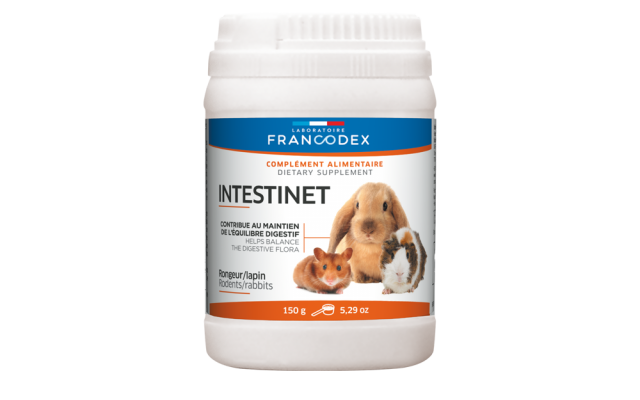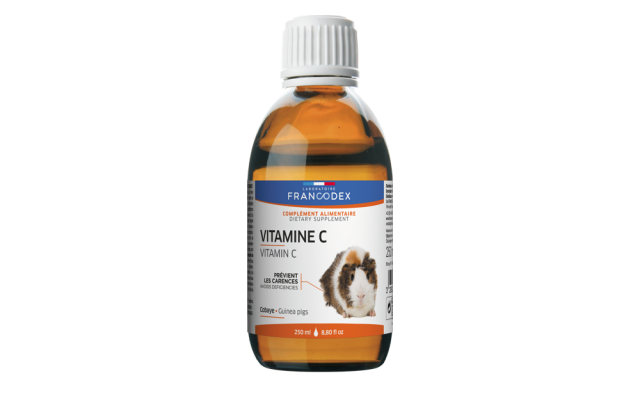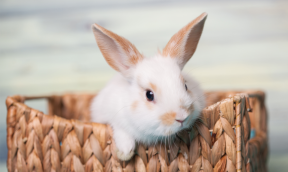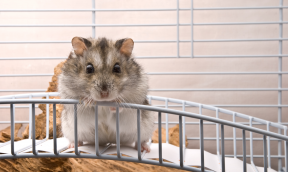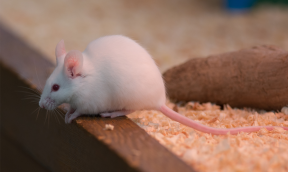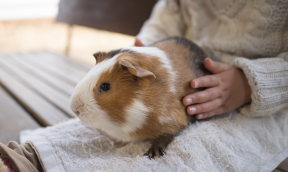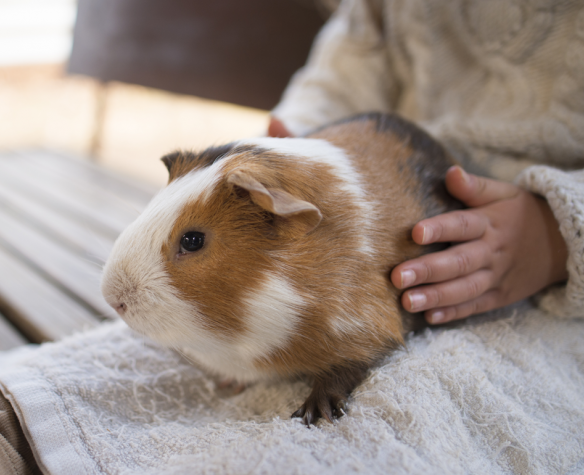
Guinea Pigs
General Information
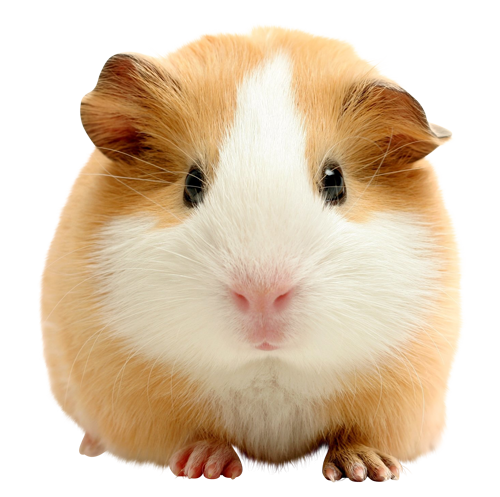
- Classification: Mammal
- Family: Caviidae
- Diet: Strictly herbivorous rodents
- Adult weight: 800 to 1200g (males can sometimes weigh more)
- Sexual maturity: 3 months for males; 2 months for females
- Gestation: 65-68 days (3 pups on average, ranging from 1 to 5)
- Weaning: 4-6 weeks
- Life span: 5-6 years
- Period of activity: Diurnal
Guinea pigs are a nidifugous species: the young are miniature adults, born with fur and their eyes open, and soon able to take care of themselves.
Different varieties of guinea pigs exist: smooth-haired guinea pigs, English guinea pigs (with a crown), Abyssinian guinea pig, Rex guinea pig, long-haired guinea pig (Peruvian, Sheltie), Texel guinea pig, and even skinny pigs (hairless guinea pigs).
The Guinea pig’s diet
Complete granules designed for guinea pigs (one tablespoon per day) and hay, with extra daily Vitamin C supplementation. Daily intake of fresh foods (plants, vegetables, fruit) is also recommended, ensuring adequate hygiene and appropriate dietary transition. During dietary transition periods, we recommend using Intestinet to support your guinea pig’s digestive function and gastrointestinal flora.
Distinctive feature of guinea pigs: they do not produce vitamin C. Hence, sufficient amounts need to be provided daily in your pet’s drinking water or feed. Deficiency may cause locomotion problems, or even hindquarter paralysis, dentition problems and a poor coat, etc. The recommended daily dose of vitamin C for guinea pigs is 20 mg per kilogram.
Also ensure your pet has unrestricted access to fresh clean water.
Environment
The cage should have plenty of room, or your pet should have regular access to a larger environment. Your pet should have clean bedding, which is changed regularly, along with one or more hiding places. Position the cage away from draughts, but not in an isolated place, if possible: guinea pigs are very sociable creatures who enjoy their masters’ company and don’t like to be left alone. Likewise, it is best to keep two or more guinea pigs instead of just one.

